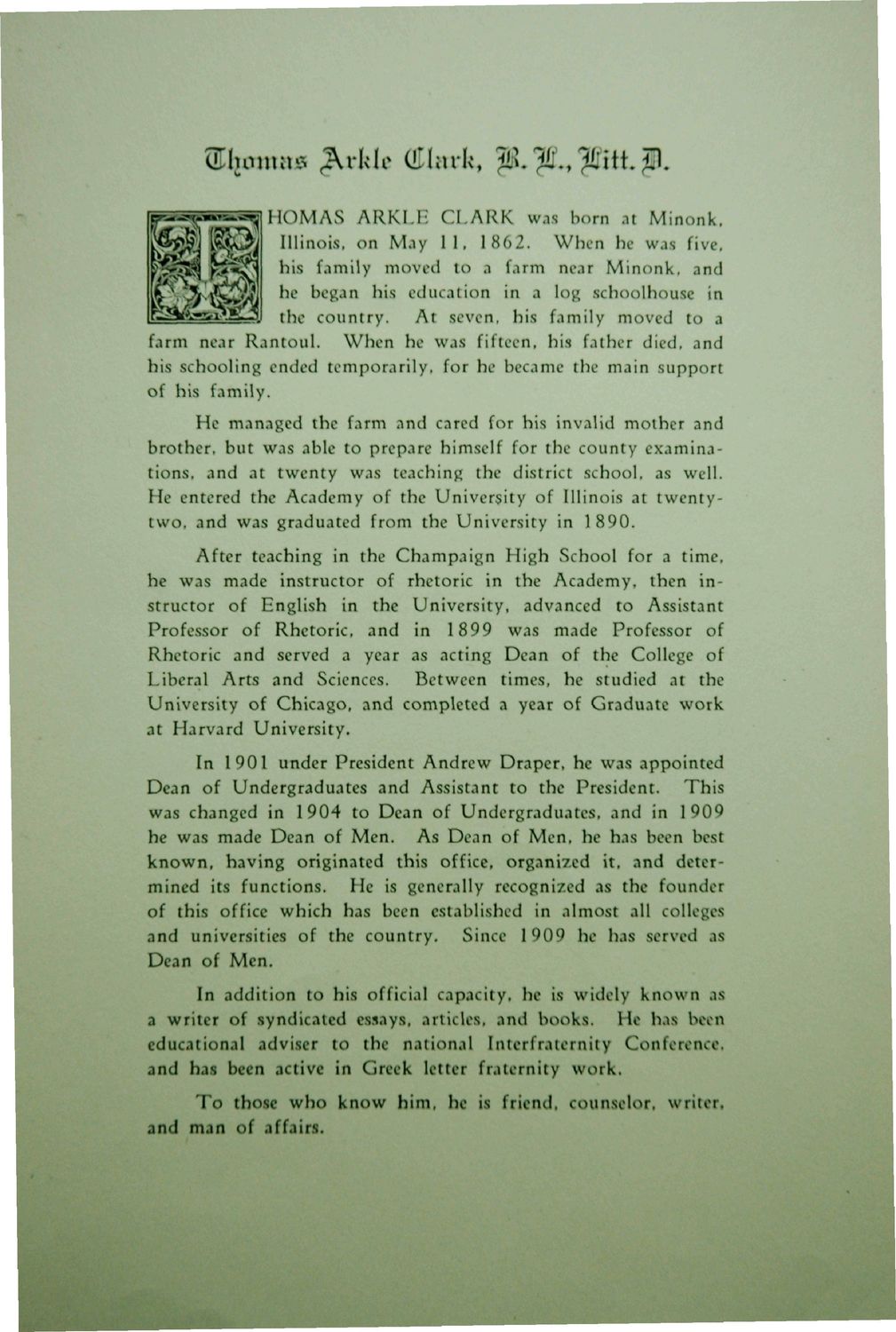| |
| |
Caption: Dedication - Thomas Arkle Clark Portrait
This is a reduced-resolution page image for fast online browsing.

EXTRACTED TEXT FROM PAGE:
f&pnm* <Arkl* athtrk, JL ?ff., ?Bit JO. HOMAS ARKLE CLARK was born at Minonk, Illinois, on May 11, 1862. When he was five, his family moved to a farm near Minonk, and he began his education in a log schoolhouse in the country. At seven, his family moved to a farm near Rantoul. When he was fifteen, his father died, and his schooling ended temporarily, for he became the main support of bis family. He managed the farm and cared for his invalid mother and brother, but was able to prepare himself for the county examinations, and at twenty was teaching the district school, as well. He entered the Academy of the University of Illinois at twentytwo, and was graduated from the University in 1890. After teaching in the Champaign High School for a time, he was made instructor of rhetoric in the Academy, then instructor of English in the University, advanced to Assistant Professor of Rhetoric, and in 1899 was made Professor of Rhetoric and served a year as acting Dean of the College of Liberal Arts and Sciences. Between times, he studied at the University of Chicago, and completed a year of Graduate work at Harvard University. In 1901 under President Andrew Draper, he was appointed Dean of Undergraduates and Assistant to the President. This was changed in 1904 to Dean of Undergraduates, and in 1909 he was made Dean of Men. As Dean of Men, he has been best known, having originated this office, organized it, and determined its functions. He is generally recognized as the founder of this office which has been established in almost all colleges and universities of the country. Since 1909 he has served as Dean of Men. In addition to his official capacity, he is widely known as a writer of syndicated essays, articles, and books. He has been educational adviser to the national Interfrateraity Conference, and has been active in Greek letter fraternity work. T o those who know him, he is friend, counselor, writer, and man of affairs.
| |